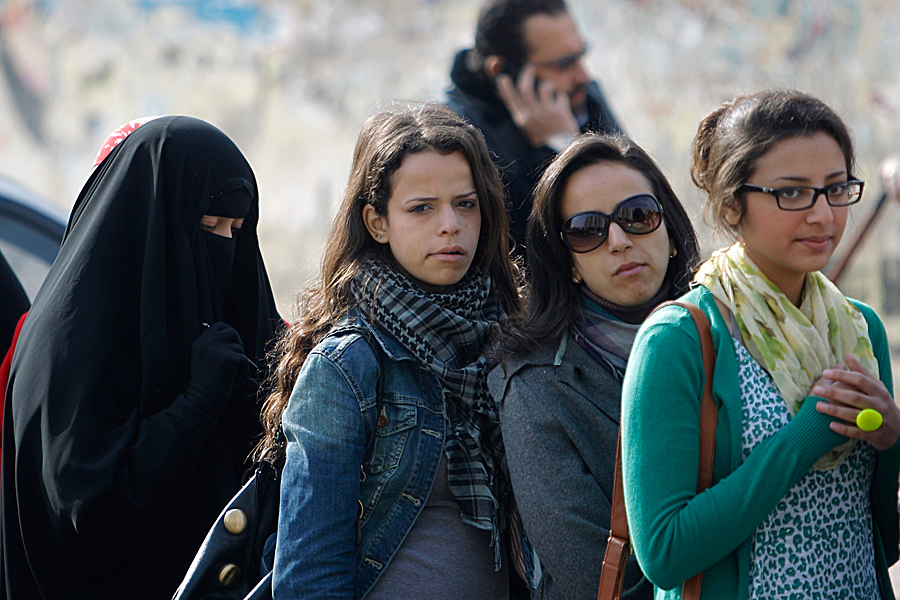By Anya Vanecek, Aswat Masriya At the top of Ahmed Orabi Street, seven Americans smiled impishly at the Cairo Jazz Club bouncer. Not one was carrying an ID – or over the minimum age of 25; he didn’t seem to mind. From the centre of the pack, I twirled the hanging ends of my Spanish-styled headscarf. He did mind that. Pointing directly at my covered head, the bouncer demanded I show my ID. Adopting a pointed American accent, I replied, “I don’t carry it with me.” The bouncer scolded me, but allowed me to follow my friends into the club. “Bring it with you next time,” he warned. Cairo Jazz Club is one of many high-end, alcohol-serving establishments which have come under fire in recent years for turning veiled women away – allegedly for morality’s sake. An article published four years ago by Ashraf Khalil for the Egypt Independent reported that “several club owners and patrons, when asked about the issue [of these unofficial hijab-free zones], questioned why someone who is truly devout would want to be in a nightclub or bar in the first place.” The assumption made when turning these…




